I cannot watch the news for five minutes lately without hearing all about Apple’s fight with the FBI. You’ve probably seen something about it too.
Just in case you need one, though, here is a refresher:
Syed Farook is a terrorist. More specifically, he is one of the two terrorists who shot 14 people in California last year. Farook had a work phone. In fact, his work phone was an Apple. Because it was a work phone, it was easy enough to get a search warrant for it. His work simply said, please do look at it.
However, the problem came in that there is a passcode locking the phone, and it is set up to where, after 10 failed attempts at opening the phone, it will erase all information from it.
The FBI thinks the phone has a lot of valuable information in it, like potentially the names of other terrorists. They want to get that information, but cannot risk having the information erased because of unsuccessful attempts at unlocking the phone.
In order to solve the problem, US Magistrate Sheri Pym ordered Apple to create software that turns off the wipe. This happened on February 16. Apple refused to comply with the order. Since then, people – from everyday citizens to members of the media to presidential candidates to lawyers to relatives of the victims in the shooting to…you get the picture – have come out for and against Apple.
So who is right?
I have my own opinions, but I won’t share them with you and hopefully they will not come out in the course of this piece. One thing I will say is that regardless of the final results of this story, there is a big precedent about to be set for businesses across the country. In other words, you might want to keep up with this, and see how it plays out.
In the meantime, here is hopefully a fully unbiased account of the main arguments on both sides of the aisle.
(P.S., the parties’ arguments are discussed in alphabetical order.)
The Argument for Apple
Apple does not want to unlock this phone despite the obvious potential security benefits, but they do have three pretty decent reasons for this refusal:
- They want to protect the privacy of their customers.
- They think allowing access to the phone this time means more and more in the future they will be asked to do so for perhaps less compelling reasons.
- They would actually have to actively make technology to do this as it currently does not exist.
So let’s look at their arguments in more detail.
A Letter from Tim Cook
Apple CEO Tim Cook wrote a letter that basically outlines their side of the issue, so any good analysis of their side should, in my opinion, use the direct source at least in part. So here’s a quote:
“Compromising the security of our personal information can ultimately put our personal safety at risk. That is why encryption has become so important to all of us.
For many years, we have used encryption to protect our customers’ personal data because we believe it’s the only way to keep their information safe. We have even put that data out of our own reach, because we believe the contents of your iPhone are none of our business.”
In other words, only you – and anybody you grant access to it – has the right to know what is on your iPhone. Apple makes it a point not to know, and they do everything they can to protect your privacy.
Apple, in the letter and beyond, maintains that they have been and will continue to do everything within their power to help the FBI. Here are some things they claim to have done:
- They have provided any requested data within their possession.
- They have complied with subpoenas and search warrants.
- They have provided guidance on continuing the investigation.
So why draw the line here?
The Slippery Slope and Software That Does Not Exist
For starters, Apple does not have the software to do this. Now, let me say right here, I have no idea how hard – if at all – that it would be for Apple to create this software. From what I do know, it might only require a slight variation of the current software. In fact, for all I know, it might be something that takes five minutes to create. However, the ease or lack thereof of creating this software actually is not the problem.
The problem comes with the ramifications of making this software at all.
A term you will hear from Apple’s proponents a lot is “backdoor.” They claim that creating this software means it could be accessed by hackers or terrorists who could use it to access anybody’s private information – including yours or mine.
Not only would creating this backdoor put the privacy of all iPhone owners at risk, but the company argues it would be a slippery slope as if the government has the right to this phone, then what would stop them from going after someone else’s next week and someone else’s the week after that, until they are using this all the time. To once again quote the letter,
“The government suggests this tool could only be used once, on one phone. But that’s simply not true. Once created, the technique could be used over and over again, on any number of devices. In the physical world, it would be the equivalent of a master key, capable of opening hundreds of millions of locks — from restaurants and banks to stores and homes. No reasonable person would find that acceptable.”
The Doctrine of Jus Tertii
So now that you have an idea of what Apple is thinking, is there any legal argument that backs their side?
Many have argued that they have several constitutional rights. For example, the fact that the software does not currently exist but would have to be created by the company might mean that could argue a First Amendment right as it would be unconstitutional compelled speech.
Others say that the company has a Fourth Amendment right to not be subject to unreasonable searches, and that requiring Apple to create software would be an unreasonable search.
However, the legal argument that I personally found interesting is based on the legal doctrine of jus tertii.
The above constitutional arguments could come with one major fallback: Apple is not a person, so those rights might not apply.
However, Apple’s customers are made up of people, and they do have the potential right to privacy.
Now, normally in court, you need to have standing. In other words, under normal circumstances, Apple could only fight for their own rights. However, jus tertii – right of a third party – is a potential way around that.
In order to use this argument, Apple would need to show some nexus between its own injury and the constitutional rights that the company claims are being violated (one such argument being that if customers do not trust that Apple will protect their data, there will be a reputational loss to the company. In other words, there will be economic harm). The Supreme Court has in the past ruled that an economic injury qualifies.
The Argument for the FBI
The FBI wants Apple to unlock this phone despite the obvious potential privacy risks, but they do have three pretty decent reasons for this desire:
- They want to protect the country and its citizens.
- They do not think this is a dangerous precedent.
- They think it is not asking much to have Apple make the technology.
So not let’s see their side.
Doing What It Takes to Fight Terrorism
The FBI and its supporters acknowledges Apple’s arguments, but believes the company is using hyperbole to support its claims.
According to them, there will be no slippery slope. This will be a one-time use that Apple will control. Going further, they claim that a backdoor will not be created. However, the benefits to creating the software could be astronomical if in fact as much valuable information as the FBI hopes is on the phone is in fact found. The benefits to national security, in the minds of the FBI, outweighs the potential privacy violations.
James B. Comey, the FBI director, down cried Cook’s claim that the software the FBI requested could be the gateway for hackers to reach everyone’s data.
“We don’t want to break anyone’s encryption,” he said, “or set a master key loose on the land.” The agency said instead that all it is asking for is an alternative operating system good for only one phone.
In fact, to support this claim, the court order itself appears to be pretty limited. It tells Apple to create something to bypass a specific feature – in this case, the feature that would wipe the phone after too many failed attempts at cracking it. Because of the limited scope of the request, FBI supporters claim no encryption keys are being requested in the first place.
Furthermore, while, in the FBI’s opinion, this would not be an onerous task for Apple, the FBI could not create the software needed to do the override themselves. This is because Apple technology is designed to run on Apple technology.
The company puts an encryption key on its software so that a system being updated will know whether it is an Apple design. Because outsiders do not have the code, even if they created a similar software, the iPhone would not recognize it. Therefore, Apple is the only one that can do it.
All Writs Act of 1789
The FBI is relying, in large part, on an old law: the All Writs Act of 1789. This law is so old that, as I am sure you can figure out based on the year, iPhones did not exist at the time it was created. In fact, that is part of Apple’s defense. They say that if legislation should exist that dictates cases like this, then Congress should create it. It should not be dictated by laws created in the 1700’s.
Perhaps a result of this case will in fact be that legislation on the matter is passed. However, in the meantime, the FBI does not have the time to wait. And so they are using the All Writs Act. Which means we should allow take a second to learn a little about it.
The law (28 U.S. Code § 1651) states:
“The Supreme Court and all courts established by Act of Congress may issue all writs necessary or appropriate in aid of their respective jurisdictions and agreeable to the usages and principles of law.”
There is somewhat of a four-part test to use this statute.
- There must not be another law on the books designed to deal with the specific issue.
- The third-party being compelled to act must be somewhat related to the investigation.
- Something big must justify the use of the statute.
- The compelled act must not be unreasonable.
The first three are pretty clearly met (since there is no law, Apple is tangentially involved, and national security is a big justification). This means that the feds will need to prove that their request is not unreasonable for Apple.
How Does This Effect Other Businesses?
What is going to happen in this confusing situation remains to be seen. However, what we can say is that the result will definitely effect the rights and responsibilities of businesses across the country.
No matter what you feel the outcome should be, make sure you keep following this fascinating situation.
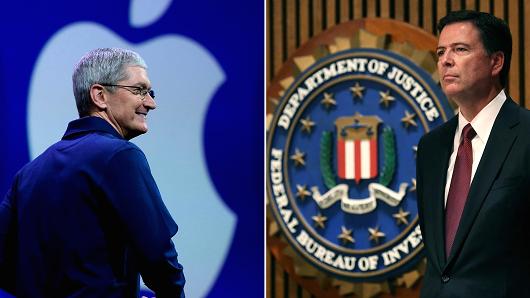


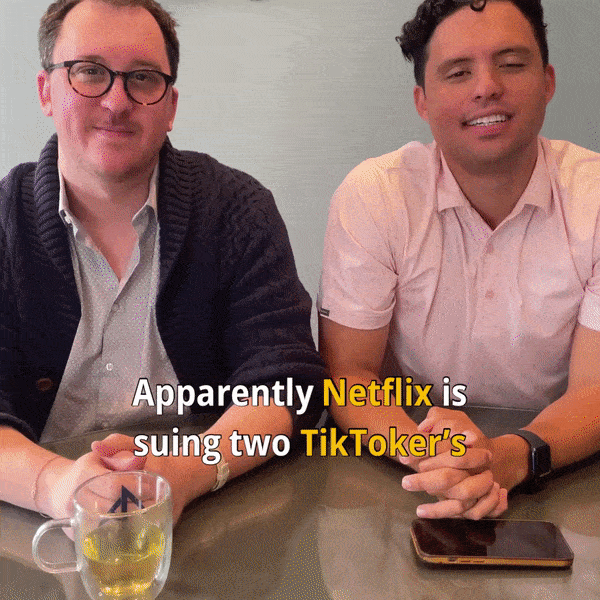

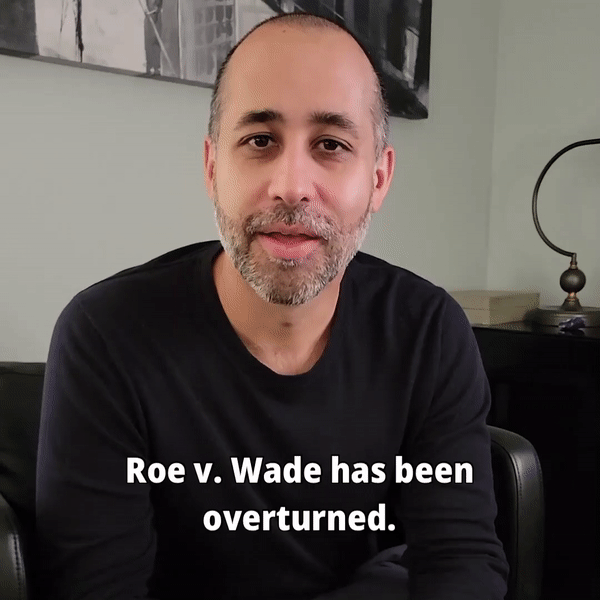
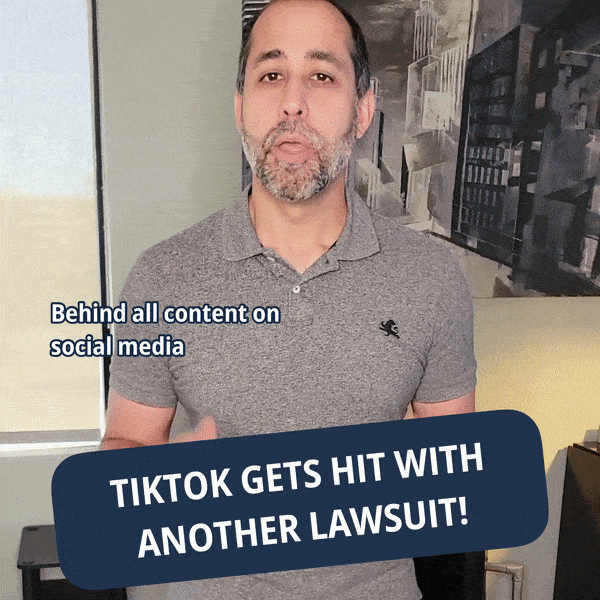
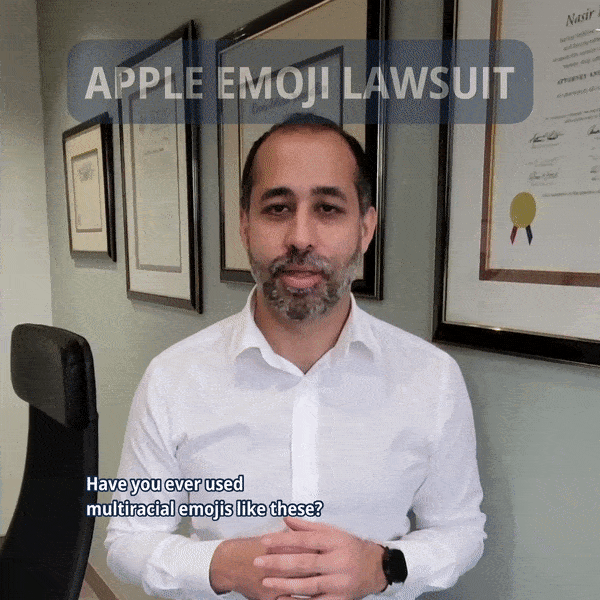
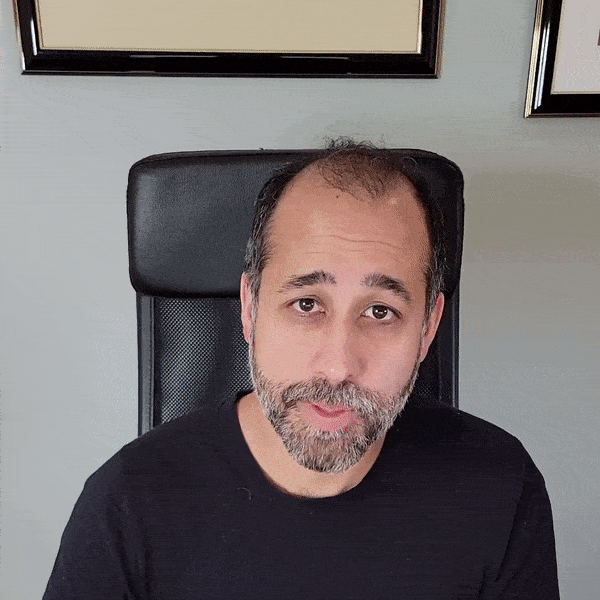
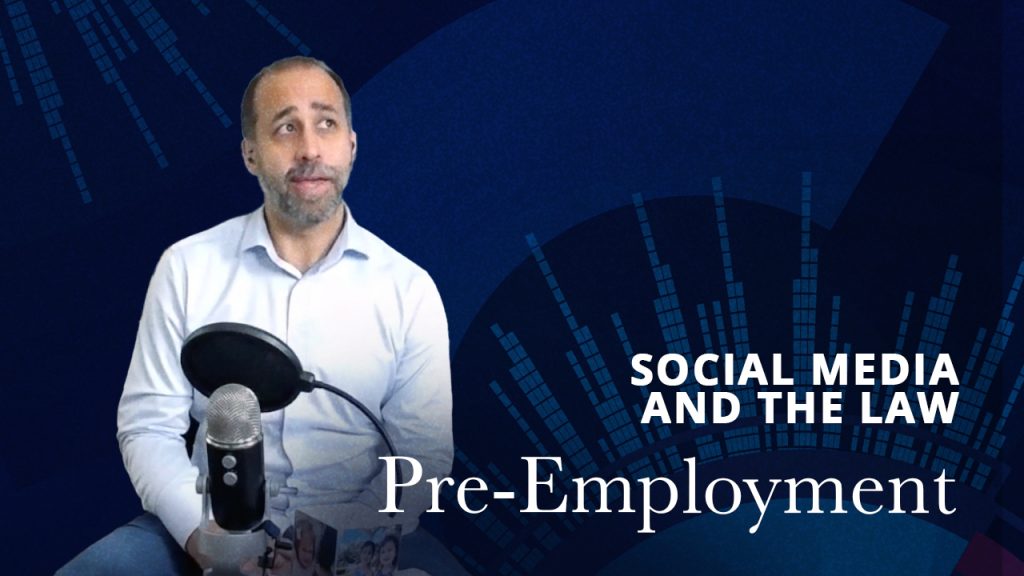
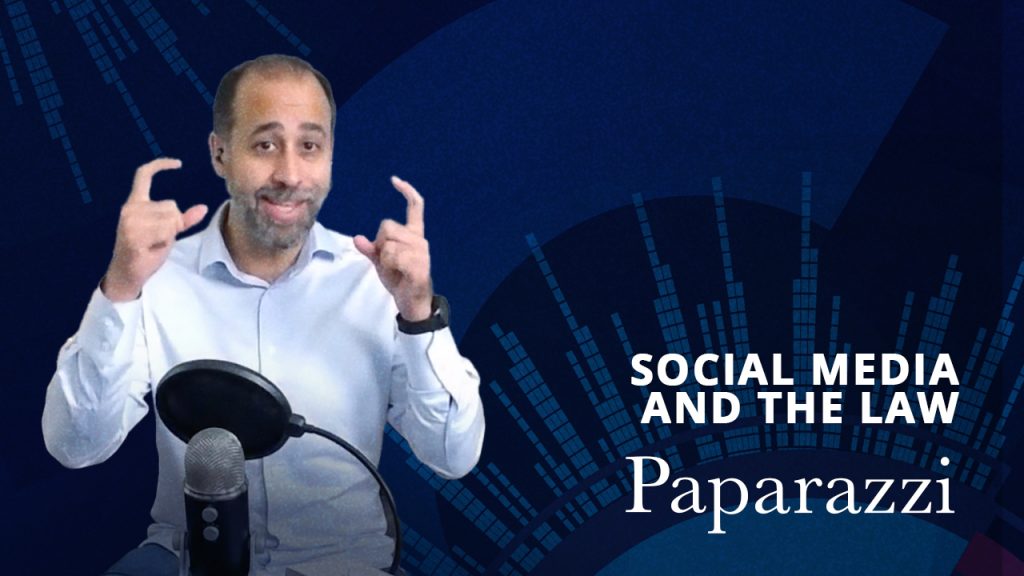
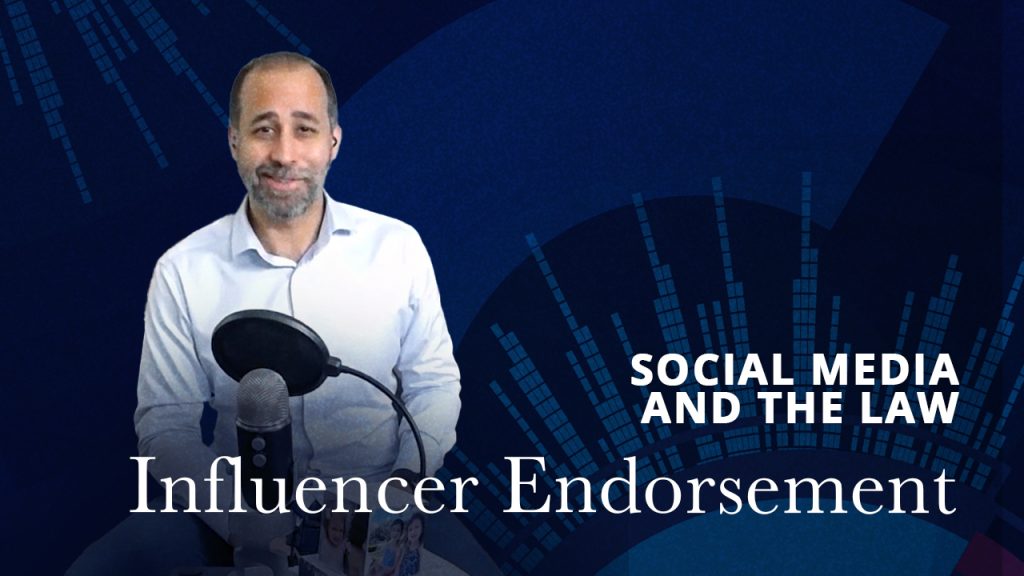
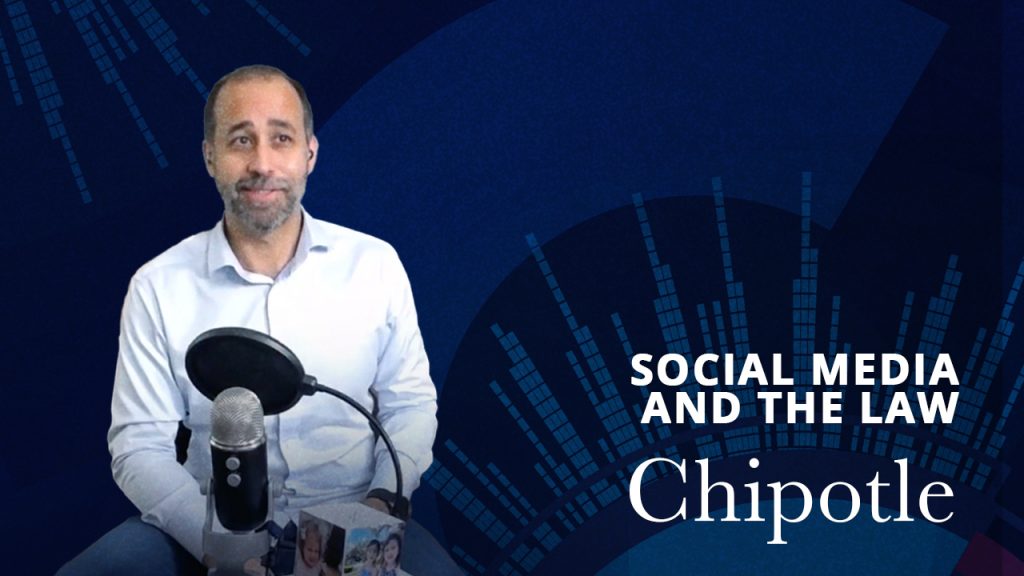
![Social Media and the Law [e315]](https://www.pashalaw.com/wp-content/uploads/2021/10/WhatsApp-Image-2021-10-06-at-1.43.08-PM-1024x723.jpeg)




![Law in the Digital Age: Exploring the Legal Intricacies of Artificial Intelligence [e323]](https://www.pashalaw.com/wp-content/uploads/2023/11/WhatsApp-Image-2023-11-21-at-13.24.49_4a326c9e-300x212.jpg)
![Unraveling the Workforce: Navigating the Aftermath of Mass Layoffs [e322]](https://www.pashalaw.com/wp-content/uploads/2023/07/Untitled-design-23-300x212.png)
![Return to the Office vs. Remote: What Can Employers Legally Enforce? [e321]](https://www.pashalaw.com/wp-content/uploads/2023/01/Pasha_LSSB_321_banner-300x212.jpg)
![Explaining the Hans Niemann Chess Lawsuit v. Magnus Carlsen [e320]](https://www.pashalaw.com/wp-content/uploads/2022/10/LAWYER-EXPLAINS-7-300x169.png)
![California v. Texas: Which is Better for Business? [313]](https://www.pashalaw.com/wp-content/uploads/2021/07/Pasha_LSSB_CaliforniaVSTexas-300x212.jpg)
![Buyers vs. Sellers: Negotiating Mergers & Acquisitions [e319]](https://www.pashalaw.com/wp-content/uploads/2022/06/Pasha_LSSB_BuyersVsSellers_banner-300x212.jpg)
![Employers vs. Employees: When Are Employment Restrictions Fair? [e318]](https://www.pashalaw.com/wp-content/uploads/2022/05/Pasha_LSSB_EmployeesVsEmployers_banner-1-300x212.jpg)
![Vaccine Mandates Supreme Court Rulings [E317]](https://www.pashalaw.com/wp-content/uploads/2022/02/WhatsApp-Image-2022-02-11-at-4.10.32-PM-300x212.jpeg)
![Business of Healthcare [e316]](https://www.pashalaw.com/wp-content/uploads/2021/11/Pasha_LSSB_BusinessofHealthcare_banner-300x212.jpg)
![Social Media and the Law [e315]](https://www.pashalaw.com/wp-content/uploads/2021/10/WhatsApp-Image-2021-10-06-at-1.43.08-PM-300x212.jpeg)
![Defining NDA Boundaries: When does it go too far? [e314]](https://www.pashalaw.com/wp-content/uploads/2021/09/Pasha_LSSB_NDA_WordPress-2-300x212.jpg)
![More Than a Mistake: Business Blunders to Avoid [312] Top Five Business Blunders](https://www.pashalaw.com/wp-content/uploads/2021/06/Pasha_LSSB_Blunders_WP-1-300x212.jpg)
![Is There a Right Way to Fire an Employee? We Ask the Experts [311]](https://www.pashalaw.com/wp-content/uploads/2021/02/Pasha_LSSB_FireAnEmployee_Website-300x200.jpg)
![The New Frontier: Navigating Business Law During a Pandemic [310]](https://www.pashalaw.com/wp-content/uploads/2020/12/Pasha_LSSB_Epidsode308_Covid_Web-1-300x200.jpg)
![Wrap Up | Behind the Buy [8/8] [309]](https://www.pashalaw.com/wp-content/uploads/2020/11/Pasha_BehindTheBuy_Episode8-300x200.jpg)
![Is it all over? | Behind the Buy [7/8] [308]](https://www.pashalaw.com/wp-content/uploads/2020/09/iStock-1153248856-overlay-scaled-300x200.jpg)
![Fight for Your [Trademark] Rights | Behind the Buy [6/8] [307]](https://www.pashalaw.com/wp-content/uploads/2020/07/Fight-for-your-trademark-right-300x200.jpg)
![They Let It Slip | Behind the Buy [5/8] [306]](https://www.pashalaw.com/wp-content/uploads/2020/06/Behind-the-buy-they-let-it-slip-300x200.jpg)
![Mo’ Investigation Mo’ Problems | Behind the Buy [4/8] [305]](https://www.pashalaw.com/wp-content/uploads/2020/05/interrobang-1-scaled-300x200.jpg)
![Broker or Joker | Behind the Buy [3/8] [304] Behind the buy - Broker or Joker](https://www.pashalaw.com/wp-content/uploads/2020/04/Joker-or-Broker-1-300x185.jpg)
![Intentions Are Nothing Without a Signature | Behind the Buy [2/8] [303]](https://www.pashalaw.com/wp-content/uploads/2020/04/intentions-are-nothing-without-a-signature-300x185.jpg)
![From First Steps to Final Signatures | Behind the Buy [1/8] [302]](https://www.pashalaw.com/wp-content/uploads/2020/04/first-steps-to-final-signatures-300x185.jpg)
![The Dark-side of GrubHub’s (and others’) Relationship with Restaurants [e301]](https://www.pashalaw.com/wp-content/uploads/2015/04/When-Competition-Goes-Too-Far-Ice-Cream-Truck-Edition-300x201.jpg)
![Ultimate Legal Breakdown of Internet Law & the Subscription Business Model [e300]](https://www.pashalaw.com/wp-content/uploads/2019/05/Ultimate-Legal-Breakdown-of-Internet-Law-the-Subscription-Business-Model-300x196.jpg)
![Why the Business Buying Process is Like a Wedding?: A Legal Guide [e299]](https://www.pashalaw.com/wp-content/uploads/2019/03/futura-300x169.jpg)
![Will Crowdfunding and General Solicitation Change How Companies Raise Capital? [e298]](https://www.pashalaw.com/wp-content/uploads/2018/11/Will-Crowdfunding-and-General-Solicitation-Change-How-Companies-Raise-Capital-300x159.jpg)
![Pirates, Pilots, and Passwords: Flight Sim Labs Navigates Legal Issues (w/ Marc Hoag as Guest) [e297]](https://www.pashalaw.com/wp-content/uploads/2018/07/flight-sim-labs-300x159.jpg)
![Facebook, Zuckerberg, and the Data Privacy Dilemma [e296] User data, data breach photo by Pete Souza)](https://www.pashalaw.com/wp-content/uploads/2018/04/data-300x159.jpg)
![What To Do When Your Business Is Raided By ICE [e295] I.C.E Raids business](https://www.pashalaw.com/wp-content/uploads/2018/02/ice-cover-300x159.jpg)
![General Contractors & Subcontractors in California – What you need to know [e294]](https://www.pashalaw.com/wp-content/uploads/2018/01/iStock-666960952-300x200.jpg)
![Mattress Giants v. Sleepoplis: The War On Getting You To Bed [e293]](https://www.pashalaw.com/wp-content/uploads/2017/12/sleepopolis-300x159.jpg)
![The Harassment Watershed [e292]](https://www.pashalaw.com/wp-content/uploads/2017/12/me-2-300x219.jpg)
![Investing and Immigrating to the United States: The EB-5 Green Card [e291]](https://www.pashalaw.com/wp-content/uploads/2012/12/eb-5-investment-visa-program-300x159.jpg)
![Responding to a Government Requests (Inquiries, Warrants, etc.) [e290] How to respond to government requests, inquiries, warrants and investigation](https://www.pashalaw.com/wp-content/uploads/2017/10/iStock_57303576_LARGE-300x200.jpg)
![Ultimate Legal Breakdown: Employee Dress Codes [e289]](https://www.pashalaw.com/wp-content/uploads/2017/08/Ultimate-Legal-Breakdown-Template-1-300x159.jpg)
![Ultimate Legal Breakdown: Negative Online Reviews [e288]](https://www.pashalaw.com/wp-content/uploads/2017/06/Ultimate-Legal-Breakdown-Online-Reviews-1-300x159.jpg)
![Ultimate Legal Breakdown: Social Media Marketing [e287]](https://www.pashalaw.com/wp-content/uploads/2017/06/ultimate-legal-breakdown-social-media-marketing-blur-300x159.jpg)
![Ultimate Legal Breakdown: Subscription Box Businesses [e286]](https://www.pashalaw.com/wp-content/uploads/2017/03/ultimate-legal-breakdown-subscription-box-services-pasha-law-2-300x159.jpg)
![Can Companies Protect Against Foreseeable Misuse of Apps [e285]](https://www.pashalaw.com/wp-content/uploads/2017/01/iStock-505291242-300x176.jpg)
![When Using Celebrity Deaths for Brand Promotion Crosses the Line [e284]](https://www.pashalaw.com/wp-content/uploads/2017/01/celbrity-300x159.png)
![Are Employers Liable When Employees Are Accused of Racism? [e283] Racist Employee](https://www.pashalaw.com/wp-content/uploads/2016/12/Are-employers-liable-when-an-employees-are-accused-of-racism-300x159.jpg)
![How Businesses Should Handle Unpaid Bills from Clients [e282] What to do when a client won't pay.](https://www.pashalaw.com/wp-content/uploads/2016/12/How-Businesses-Should-Handle-Unpaid-Bills-to-Clients-300x159.png)
![Can Employers Implement English Only Policies Without Discriminating? [e281]](https://www.pashalaw.com/wp-content/uploads/2016/11/Can-Employers-Impliment-English-Only-Policies-Without-Discriminating-300x159.jpg)
![Why You May No Longer See Actors’ Ages on Their IMDB Page [e280]](https://www.pashalaw.com/wp-content/uploads/2016/10/IMDB-AGE2-300x159.jpg)
![Airbnb’s Discrimination Problem and How Businesses Can Relate [e279]](https://www.pashalaw.com/wp-content/uploads/2016/09/airbnb-300x159.jpg)
![What To Do When Your Amazon Account Gets Suspended [e278]](https://www.pashalaw.com/wp-content/uploads/2016/09/What-To-Do-When-Your-Amazon-Account-Gets-Suspended-1-300x200.jpg)
![How Independent Artists Reacted to Fashion Mogul Zara’s Alleged Infringement [e277]](https://www.pashalaw.com/wp-content/uploads/2016/08/How-Independent-Artists-Reacted-to-Fashion-Mogul-Zaras-Alleged-Infringement--300x159.jpg)
![Can Brave’s Ad Replacing Software Defeat Newspapers and Copyright Law? [e276]](https://www.pashalaw.com/wp-content/uploads/2016/08/Can-Braves-Ad-Replacing-Software-Defeat-Newspapers-and-Copyright-Law-300x159.jpg)
![Why The Roger Ailes Sexual Harassment Lawsuit Is Far From Normal [e275]](https://www.pashalaw.com/wp-content/uploads/2016/07/WHY-THE-ROGER-AILES-SEXUAL-HARASSMENT-LAWSUIT-IS-FAR-FROM-NORMAL-300x159.jpeg)
![How Starbucks Turned Coveted Employer to Employee Complaints [e274]](https://www.pashalaw.com/wp-content/uploads/2016/07/iStock_54169990_LARGE-300x210.jpg)
